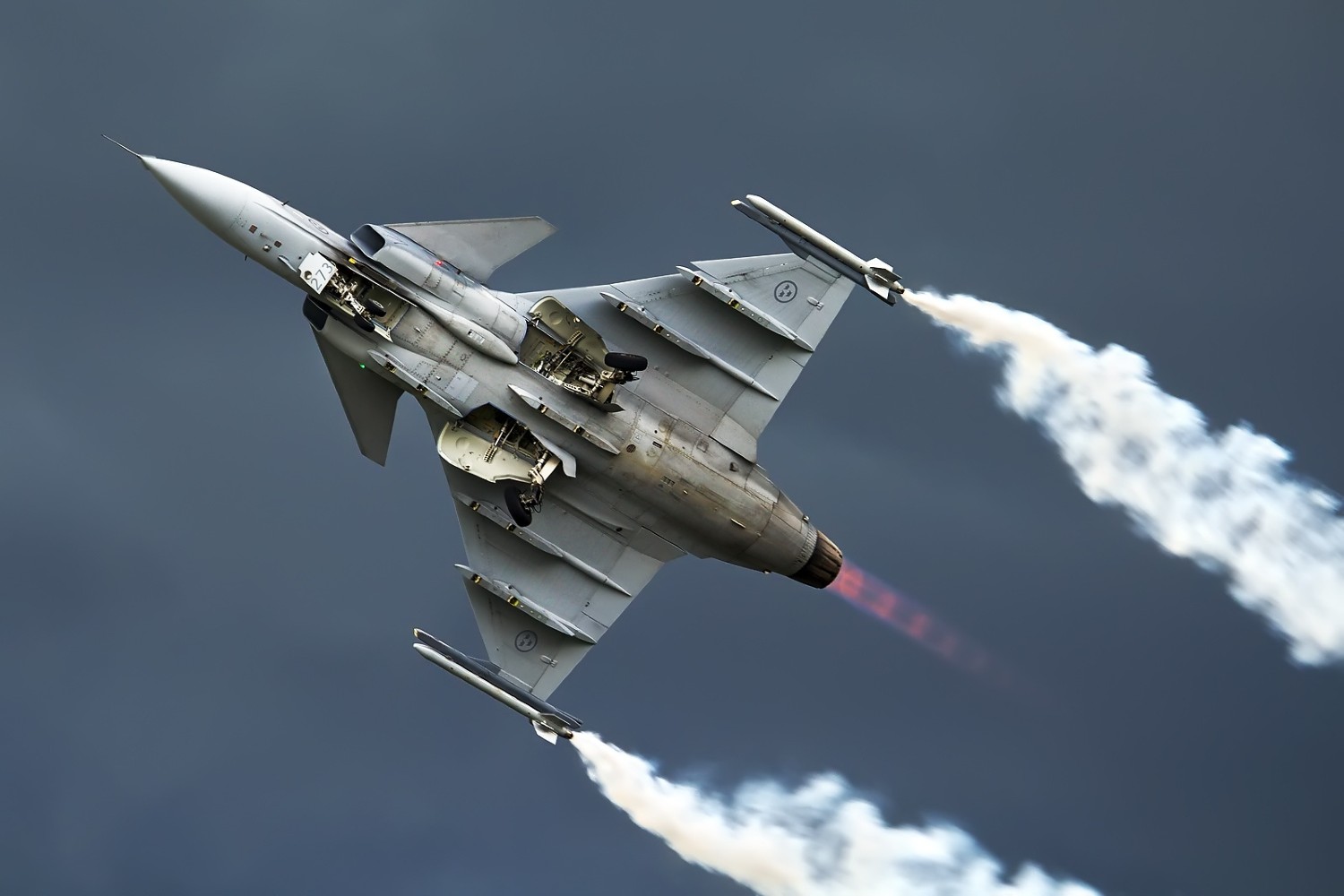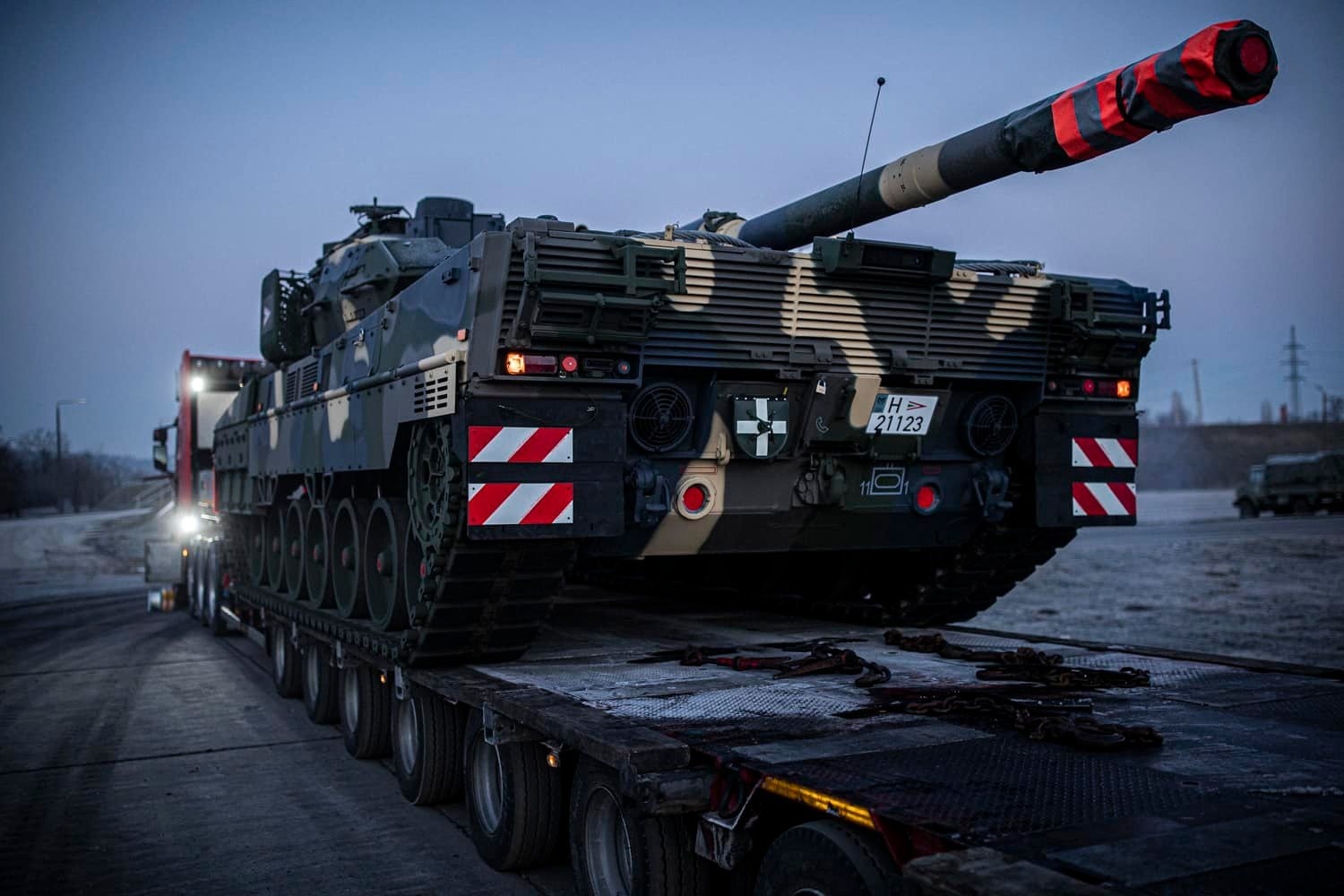Notwithstanding its growing relationship with Russia and China, Hungary has upgraded its military with European equipment. The addition of Leopard-2A7 Main Battle Tanks (MBTs) of German origin and the possible acquisition of Swedish Gripen-E fighters showcase the Hungarian resolve to strengthen its combat capability.
The Hungarian Defense Ministry announced the addition of two Leopard-2A7 MBTs to its Army on June 3. “The HDF 1st Armored Brigade recently received another two Leopard 2A7HU main battle tanks, announced Defense Minister Kristóf Szalay-Bobrovniczky.”
These new Leopard 2A7 tanks, including a driver training tank, will facilitate the advanced training of non-commissioned and armored officers. The Minister of Defense emphasized that the goal of a multi-month professional training program was to guarantee that people would gain a thorough understanding and proficiency in the operation of modern MBTs.
The Defense Minister said, “This months-long vocational training course guarantees that the personnel will gain professional knowledge of the new military equipment.”
AfriPrime App link: FREE to download...
https://www.amazon.com/Africircle-AfriPrime/dp/B0D2M3F2JT
In its official announcement, the ministry said that the HDF “vitéz Tarczay Ervin” 11th Tank Battalion now has about 13 of these tanks with the latest addition. The minister said that the process was going on and that 48 Leopard-A7 tanks would be delivered to Hungary by 2028.
The deal for cutting-edge Leopard-2A7 MBTs was inked between the Hungarian Defense Ministry and the German defense firm Krauss-Maffei Wegmann (KMW) in December 2018 as part of a large-scale Hungarian defense and military modernization program, “Zrínyi 2026.”
The tank is good news for Hungary. It is equipped with an 8-kilometer range 120 mm smoothbore cannon, measuring 55 calibers (6.6 meters) in length.
To increase its combat efficiency, the German tank is outfitted with an extensive array of add-ons, including a CBRN (chemical, biological, radiological, and nuclear defense) system, a fuel pre-heater, a heater for the crew compartment, a fire extinguishing system, a thermal imaging system, an auxiliary power unit, and several other pieces of gear.
As the most recent model in the Leopard tank series, the Leopard 2A7 is an asset to the Hungarian Armed Forces. The Leopard 2A8 is still in development.
Hungary’s military modernization is not limited to MBTs. Earlier this year, the country signed a contract with Swedish manufacturer SAAB to acquire four additional SAAB Gripen C/D aircraft ahead of Hungary ratifying Sweden’s membership of NATO. At the time, observers noted that the Gripens could have been a decisive factor in Hungary relinquishing its long-held reluctance to Sweden’s entry into NATO.
Last month Hungary hinted that it was considering the purchase of the latest variant of the Saab Gripen, the Gripen-E. The Swedish manufacturer is currently seeking buyers for its cutting-edge Gripen fighter jet, a move that signals an exciting opportunity for the aviation industry.
Åsa Thegström, vice president and deputy head of Aeronautics at Saab, announced that negotiations were on about the possible sale of the company’s latest Gripen E to the Hungarian Air Force (HuAF), which already operates the Gripen C/D aircraft. Budapest already operates 14 Gripens leased from Sweden.
Hungary has made no bones about the need to bolster its air power amidst Europe’s worsening situation. However, it may be interesting to note that despite relying on European states and manufacturers to bolster its military power, Hungary has been easy on Russia and has been strengthening its relationship with China—much to the disenchantment of its allies in NATO.
AfriPrime App link: FREE to download...
https://www.amazon.com/Africircle-AfriPrime/dp/B0D2M3F2JT

Hungary’s Ties With Russia & China Concerns NATO
Several countries in the NATO alliance have expressed concern and disenchantment with Hungary’s ties with Russia and China. Since Russia launched the invasion of Ukraine, Hungary has been walking the tightrope: NATO allies have collectively called Budapest the closest European ally of the Kremlin.
Hungary has, for instance, blocked the European Union’s sanctions on Russia on multiple occasions, leading to the ire of NATO allies. In February this year, Hungary was the only country that did not support the 13th package of EU sanctions against Russia. While other NATO countries have cut ties with Moscow and imposed sanctions, Hungary continues to buy billions of dollars of Russian oil and gas annually.
The latest demonstration of Hungary’s refusal to cooperate with its European counterparts was Prime Minister Viktor Orbán’s statement on state radio that his country would not be involved in any NATO operations that support Ukraine. Orbán said that Hungary was against a plan NATO was considering to give Ukraine more predictable military help in the future to stave off Moscow’s full-scale invasion.

“We do not approve of this, nor do we want to participate in financial or arms support (for Ukraine), even within the framework of NATO,” Orbán said. It is important to note that Ukraine has chastised Hungary for blocking aid and cultivating ties with Russia.
Hungary has also been inching closer to China, much to the disapproval of the United States-led NATO. During Chinese President Xi Jinping’s visit to Hungary last month, the two countries inked new agreements to strengthen their economic and cultural ties.
Orbán pledged that Hungary would continue to welcome more Chinese investments during a press conference held after the discussions. He also commended the “continuous, uninterrupted friendship” between the two nations since his administration started in 2010.
“I would like to assure the president (Xi Jinping) that Hungary will continue to provide fair conditions for Chinese companies investing in our country and that we will create the opportunity for the most modern Western and the most modern Eastern technologies to meet and build cooperation in Hungary,” Orbán said.
At the press conference, Orbán —a nationalist-populist leader who has cultivated closer ties with Beijing—remarked that three-quarters of Hungary’s investments last year came from China and discussed Beijing’s role in the shifting global power dynamics.
Experts believe Orban has been nourishing his ties with China to exist in the new Cold War-style confrontation between the West and China, and Russia’s refusal to stop the conflict started leading to new geopolitical realities.
AfriPrime App link: FREE to download...


